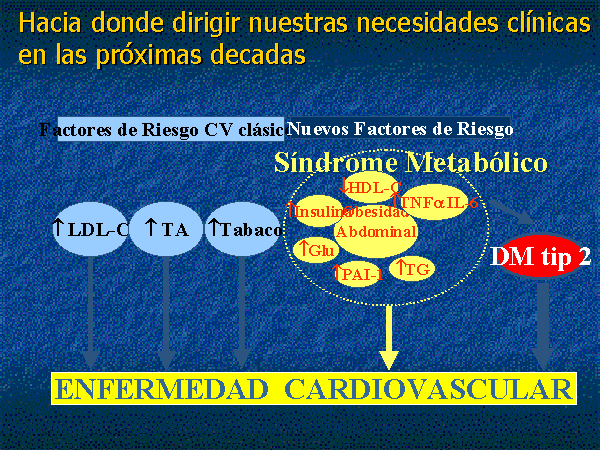Diapositiva 9 de 78
Notas:
Unmet clinical needs to address in the next decade
The adverse effects of cardiovascular prognosis of the classical cardiovascular risk factors, hypercholesterolaemia, hypertension and smoking, are well understood. Our increasing understanding of the pathophysiology of cardiovascular disease is now defining the importance of a range of new cardiovascular risk factors.
Among these, abdominal obesity, low HDL-C, hypertriglyceridaemia and the hyperglycaemia associated with insulin resistance are all recognised criteria for the diagnosis of the metabolic syndrome. However, a range of important novel risk factors or risk markers for cardiovascular disease are also associated with the metabolic syndrome, although not yet included within its definition. These include chronic, low-grade inflammation, and disturbances in the secretion of bioactive substances from adipocytes (‘adipokines’) that influence cardiovascular structure and function.
The cardiovascular risk factors associated with the metabolic syndrome, whether included within its diagnostic criteria or not, contribute to the progression of atherosclerotic cardiometabolic disease, and represent an important clinical need inadequately addressed by current therapies.

















